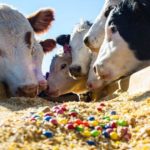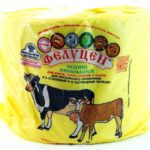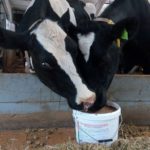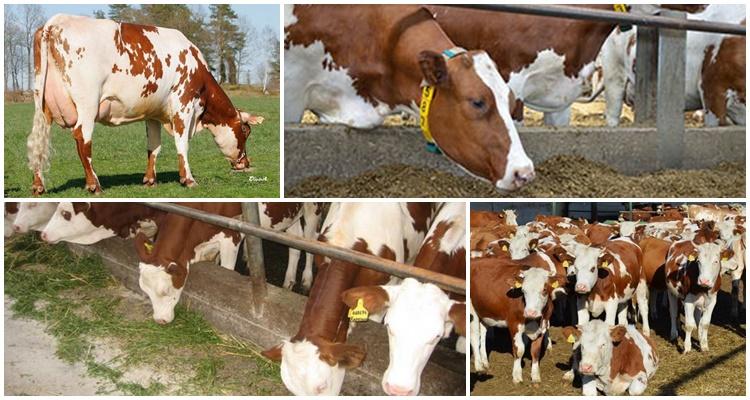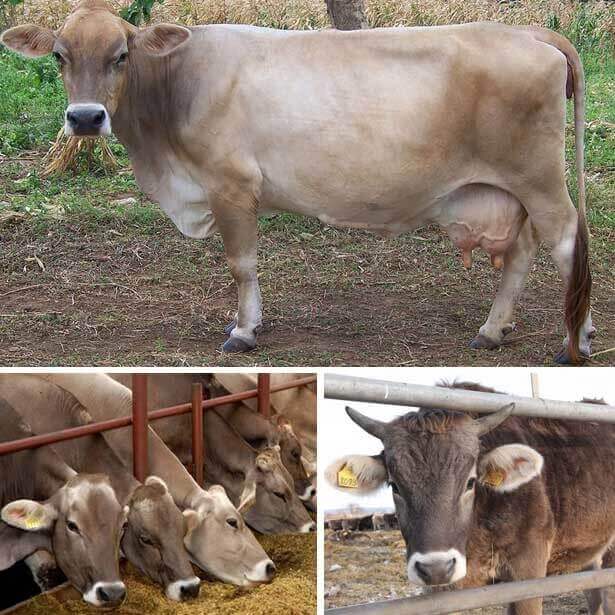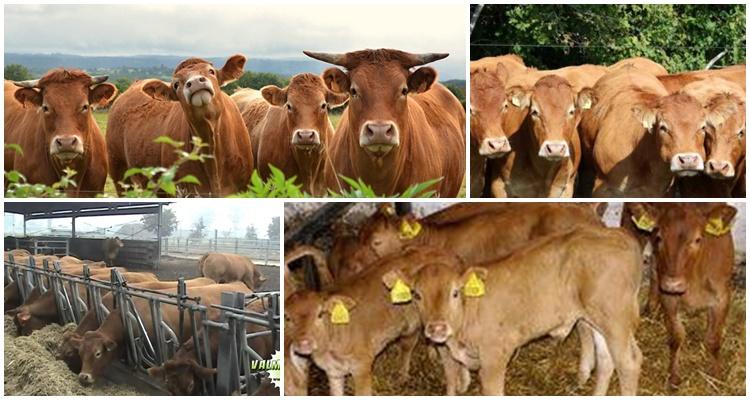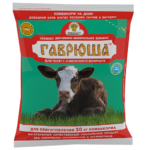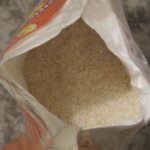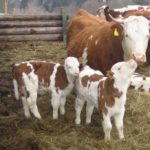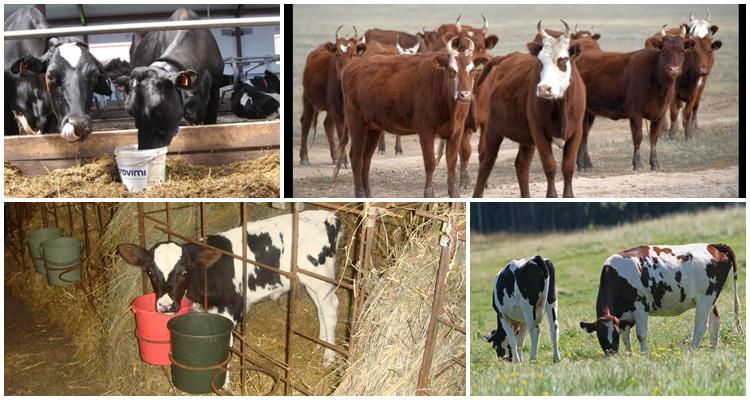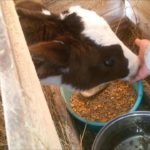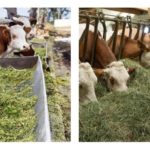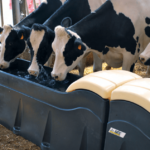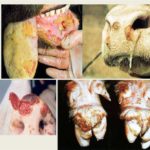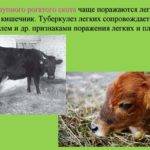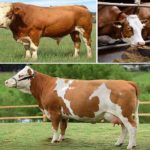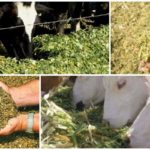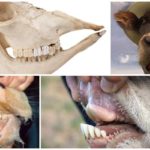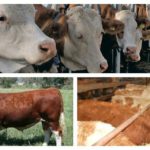High-quality balanced nutrition is the key to the health and normal development of the animal. Without a sufficient amount of vitamins for cattle, even very good housing conditions will not lead to the desired results. Beneficial microelements help improve immunity and promote high performance in bulls. When preparing a daily diet, the age and weight of the animals should be taken into account in order to correctly determine the amount of supplements.
Importance of vitamins for cattle
Even with good nutrition, animals require special supplements. These substances are beneficial for the milk obtained from the cow, which has a positive effect on milk yield. They also improve metabolism, strengthen the immune system, and have a positive effect on the reproductive function of cattle.
Signs and at the same time consequences of a lack of useful microelements are:
- the surface of the udder and genitals acquires a jaundiced tint;
- the quality of wool deteriorates;
- skin loses elasticity;
- animals become lethargic;
- Cows (including fattening cows) have poor weight gain;
- vision deteriorates;
- metabolism is disrupted;
- in calves, bone growth is disrupted and limbs are deformed;
- gums bleed;
- the coat thins, ulcers appear on the skin.
All this confirms the importance of vitamins for the health and normal development of cattle. The microflora of the gastrointestinal tract produces a certain proportion of organic components, but their quantity is not enough to replenish resources.
Types and role of individual vitamins
Bioregulators A, D, B12, E largely determine the health of livestock and influence the formation of the animal’s body. Useful microelements are needed not only by calves, but also by adults.
Each of these components helps the organs to properly perform their functions.
Vitamin A
Otherwise, retinol. The source of the microelement is plant food, where the vitamin is represented by carotene. Once in the body, the substance is transformed into retinol, which ensures the functioning of the eyes and cells. If it is deficient, the following problems arise:
- Impaired vision and coordination.
- Inflammation of the eyes.
- Resistance to infections of the gastrointestinal tract and respiratory system decreases.
- Complicated pregnancy and birth of blind calves.
- Reproductive system dysfunction: delayed ovarian development, low sperm motility.
- Loss of reproductive function in bulls.
- Dysfunction of the central nervous system.
- Death of calves in winter.
Vitamin A is of great importance for dairy cows. The stronger the lactation, the more retinol is required.
Vitamin D
If there is a deficiency of the element, calcium absorption becomes impossible, which leads to the development of rickets in young animals. The source of the element is sunlight. In winter, when there is a deficiency of it, cows are irradiated with an ultraviolet lamp, which makes it possible to compensate for the deficiency of the component.
Signs of a deficiency of this element are:
- Curvature of the limbs in calves.
- Gastrointestinal disturbances, loss of appetite.
- Tooth loss in young animals and lactating cows.
- Partial paralysis after calving.
- Violent behavior of animals.
Feeding cows with vitamin D increases lactation, which has a positive effect on milk yield.
Vitamin B12
This component is not contained in plant foods. A lack of substance leads to the following consequences:
- Metabolism and liver dysfunction.
- Milk fever.
- Poor coordination.
- Excitability.
- Skin diseases (eczema).
- Problems with reproductive function.
- Anemia.
- Slow growth.
- Exhaustion.
- The birth of weak offspring.
Saturating the body with vitamin B12 helps build muscle mass, which is especially important for beef cows.
Vitamin E
Signs of deficiency of this component are:
- Poor fat gain in calves.
- Slowing growth and development, which leads to exhaustion, muscle atrophy, and paralysis.
- Disruption of the cardiovascular system.
- Improper functioning of the reproductive organs:
- loss of fertilization function in bulls, delayed ovarian development in cows;
- inability to produce healthier offspring;
- inability to get pregnant;
- hidden abortion (embryo resorption).
And yet, despite the listed symptoms, it is practically impossible to identify a lack of vitamin E without the help of specialists. In adults, deficiency of the element is rare. Bioregulator E is used in combination with vitamin A: the components influence each other and enhance the effect of each of them.
At what age can vitamins be given?
Young animals receive the required amount of vitamins from the moment of birth. The source is cow's milk. However, if the birth occurred in autumn-winter, the lack of nutrients should be compensated by adding vitamin complexes for newborns to the milk.
Daily dose
The daily volume of bioregulators is calculated based on the animal’s body weight and planned productivity. The daily requirement of vitamin A is 30-40 or 35-45 IU. The amount of vitamin D should be present in the cattle diet in the amount of 5 to 7.5 IU. Bioregulator E is added in an amount of 100-200 mg.
How to feed calves correctly
Vitamin supplements are offered in the form of powders that are mixed with food. If this is not enough, the drugs are administered intramuscularly, intravenously or subcutaneously. The best supplements are:
- “Gavryusha premix for calves”;
- “Biomix for calves Standard”;
- "Solvimin Selenium".
As for injections, they begin to be administered from six months.Injections are also given to bulls for faster growth. Popular supplements include:
- "Trivit";
- "Tetravit";
- "Eleovit".
Direct sources of vitamins:
- milk (gives the young animals all the necessary components);
- hay (calves receive vitamins D, B3, carotene);
- fresh grass (source of bioregulators E, B2, B3)
- carrots (rich in carotene);
- grain (includes B1, B5).
How to combine taking vitamins with feeding
Powders are usually mixed with feed. Obviously, the injections do not depend on normal nutrition, so the question of combination does not arise. The main task of the farmer is to provide young animals with a daily dose of beneficial microelements, regardless of the form in which they are given to the animals. It is important to diversify the diet of cattle by adding vegetables, root vegetables and feed to the diet.
When compiling daily portions, the weight and age of the livestock are taken into account.
Vitamins are useful substances that directly affect the growth and development of animals. A deficiency of one or another bioregulator leads to diseases and abnormalities, and also reduces productivity - the amount of milk yield and meat that can be obtained from cattle. Therefore, it is important to notice signs of a lack of components and promptly restore the amount of bioregulators required by the body.

